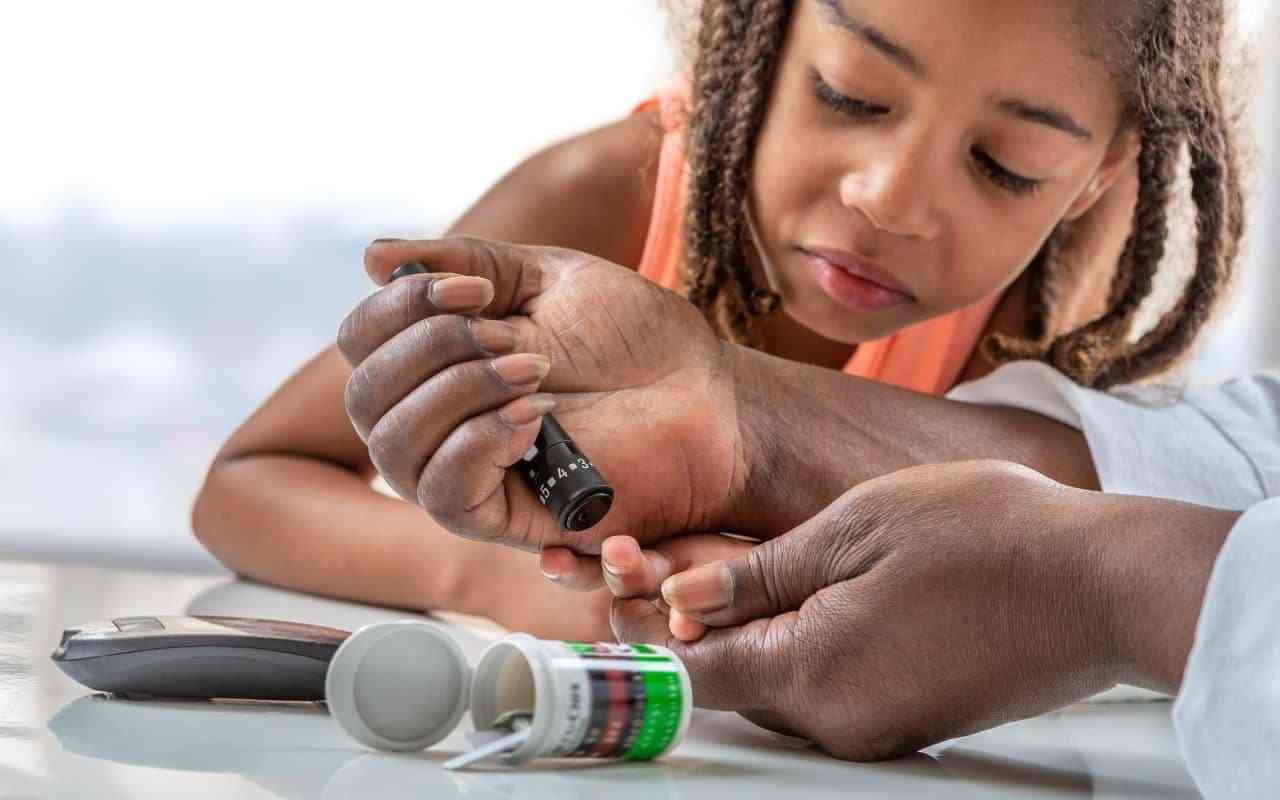If your child has been diagnosed with type 1 diabetes, these tips can help you support them as they navigate treatment and build a fulfilling life.
Each year, thousands of people are diagnosed with type 1 diabetes, many of whom are children and adolescents. When a child is diagnosed with diabetes, it can be overwhelming and scary not only for them but also for their parents. While it’s true that it’s mainly the child’s life that will be affected, parents might find it hard to navigate a new diagnosis. If your child is very young, you’ll likely have to take care of their treatment for them. If your child is a teen, it can be hard to help them navigate the emotions of a diagnosis and learn how to treat the disease. All of this can be overwhelming and make it difficult for parents to support their children in the way they need. But there’s hope. The truth is, a diagnosis is difficult for everyone involved, and at times there’s a period of grieving. But there are many ways you can help your child not only to cope but to thrive.
The best way to support your child who’s been recently diagnosed with type 1 diabetes is to show them how much you love them and that you’re always there for them. Don’t start treating them differently or lament their diagnosis. There are plenty of things you can do to show your support and make the transition easier for your child. Here are a few ways to help your child after diagnosis.
1. Learn how to care for your child's type 1 diabetes.
If your child is still young, this one is a no-brainer. Young children can’t manage diabetes on their own, so it will be up to you to take care of monitoring their blood sugar, dosing insulin, and scheduling regular visits with their endocrinologist. It’s a big job and can be overwhelming, but you’ll get the hang of it with practice.
Even if your child is a teenager, you should still learn the ins and outs of caring for diabetes. If your child gets sick or has an emergency, you’ll be prepared to take over even if they usually care for themselves. You can also offer to help them if they start to get burnt out. At the very least, you’ll understand the disease better and will be in a better position to help your child with their treatment.
How can you learn to care for type 1 diabetes? The best resource is a diabetes educator along with your child's diabetes care team. Diabetes educators can teach you everything you need to know about caring for diabetes, from giving insulin shots to learning how to use a continuous glucose monitor. If you want something you can refer back to whenever you need to, books about managing diabetes are also great resources. There are also lots of forums and blogs where you can read about and interact with people who are going through the same things as you and your family.
2. Stay calm and reassure your child about their type 1 diabetes diagnosis.
It’s normal that a new diagnosis can cause a wide range of emotions, and everyone reacts differently. But as the parent, the way you deal with your child’s diagnosis can impact them for years to come. So take a deep breath, and keep calm. Everything is going to be OK, and your child will be able to live a normal life. So don’t act like it’s the end of the world. Remember that your child needs comfort and compassion, especially in the months after their diagnosis. They need to be reassured, and you can help them to feel more secure and confident about the changes in their life. Don’t make it all about you. You’ll likely experience some fear, stress, and even sadness, but try not to focus on the negative, especially in front of your child. If you’re constantly complaining or lamenting their diagnosis, you could unwittingly make them feel like a burden or cause them to feel more scared and confused than they already do.
If you’re struggling with your child’s diagnosis, talk with someone you trust. Be sure to take care of your own mental health, but don’t burden your child with that responsibility. Seek help from friends and family, and ask your child’s diabetes team if they know of any resources for parents.
3. Be approachable; let your child know you'll always be there to listen and support them.
Let your child know that you’re there to help them and that they can always talk to you if they’re feeling overwhelmed, sad, or anxious about their diagnosis. Diabetes can feel like a full-time job on top of all of the responsibilities of daily life. It’s normal if your child goes through periods of time where they feel stressed or burnt out from taking care of themselves. Let them express themselves and offer to help them out in any way that you can.
Look for ways to make your child’s life with diabetes easier in any way you can. Help them put together a stylish diabetes bag to carry their supplies. Buy them fun patches for their CGM and infusion sites. Offer to help them adjust their pump settings if they’re struggling with maintaining their blood sugar stable. You know your child best and can determine what kind of help they would appreciate.
You can also look for ways to advocate for them as well. Talk with their teachers and explain to them that your child has type 1 diabetes and at times they might need to eat something in class or give themselves insulin injections. Explain to family members and friends how to help your child if they experience serious low blood sugar. Having a support system will help your child to feel more confident caring for themselves.
4. Let them handle their diabetes care if they prefer.
Older children might want to manage their own care. They might feel like you’re nagging them if you constantly ask them about their blood glucose levels. While it can be hard to let them take the reins, if your child is old enough to care for themselves, let them. One day they’ll be completely responsible for their own care, so it’s good for them to learn while they’re still at home.
It might be hard for you to let your child care for themselves. Maybe you worry that their blood sugars are out of control or are concerned that they aren’t caring for themselves properly. If you have serious concerns, it’s OK to speak with your child. But micromanaging their blood sugars and treatment probably won’t go over very well. Understand that at times your child will have high and low blood sugars – nobody’s perfect, and managing diabetes isn’t an exact science. If your child is trying to manage their blood sugars on their own, it might take time for them to learn. Be patient and let them go through the process without sharing unsolicited opinions or suggestions.
Of course, as a parent, you’ll always worry about your child and want them to be safe and healthy. But with help from their diabetes team and support from you, they’ll be able to manage their diabetes on their own.
5. Empower them to live a life without limits.
When someone receives a diagnosis, they usually start thinking about how it’s going to change their life. Will they be able to do all of their hobbies? Can they still eat their favorite foods? How will travel, work, school, and other areas of their life be affected? Often the scariest part of getting diagnosed with a chronic illness like type 1 diabetes is making lifestyle changes.
While it’s true that type 1 diabetics spend a lot of time, money, and energy caring for themselves, a diagnosis doesn’t mean that their life or dreams are over. There are type 1 diabetics that are professional sports players, famous musicians, and accomplished actors. A type 1 diabetes diagnosis doesn’t mean that your child can’t live their dreams or do the things they love to do. While they’ll always have to deal with their disease and it may at times wear them down or frustrate them, they can live a life without limits as a type 1 diabetic.
As a parent, you can empower your child to live the life they want. Don’t tell them they can’t do certain things because they have diabetes. Instead, help them find a way that they can do what they love in spite of the potential challenges. Encourage them to pursue their goals and help them to see there’s nothing they can’t do.
It’s not easy for any parent to hear that their child has type 1 diabetes. But if you look for ways to show your child love and support, it will be much easier to process the diagnosis and move forward with life. Learn as much as you can about how to take care of type 1 diabetes. Don’t talk negatively or panic. Keep your cool and show your child that everything is going to be alright. Allow them to express themselves and look for ways to help them. If you do your best to support your child, they’ll be able to live a life without limits.
Image via Deposit Photos.
Freelance writer, traveler, dog lover, and language enthusiast.









